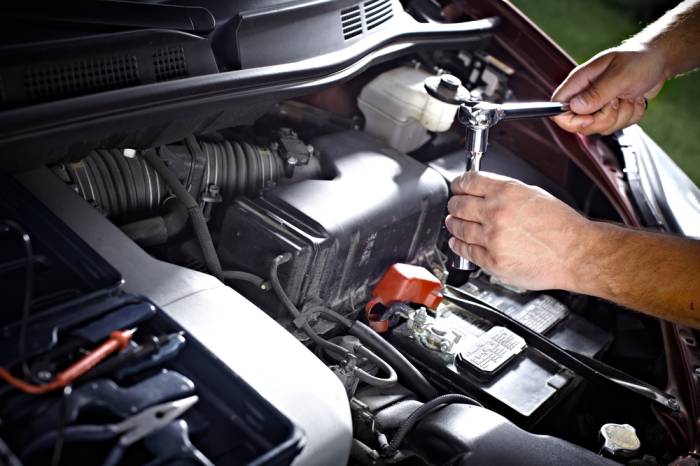Exploring Advanced Systems in Hybrid Car Batteries
Hybrid cars have revolutionized the automotive industry by offering a sustainable and eco-friendly alternative to traditional gasoline-powered vehicles. At the heart of these innovative vehicles lies the hybrid car battery, a sophisticated system that combines the best of traditional combustion engines with electric propulsion. We delve into the world of hybrid car batteries, exploring their advanced features, cutting-edge technologies, and prospects.
Introduction to Hybrid Car Batteries
Hybrid cars use different types of power to make them move. They usually have a regular engine like other cars, but they also have electric motors. People started using hybrid cars more because they save fuel, produce fewer harmful gases, and are better for the environment. Central to the operation of hybrid vehicles are advanced hybrid car batteries, which store and deliver electrical energy to power the electric motors.
Types of Hybrid Car Batteries
Hybrid car batteries come in various types, each with its unique characteristics and advantages, catering to different needs and preferences in the realm of hybrid vehicle technology.
Nickel-Metal Hydride (NiMH) batteries
Nickel-metal hydride (NiMH) batteries are often used in hybrid cars because they can store a lot of energy and are known to be dependable. These batteries use a nickel ox hydroxide cathode, a metal hydride anode, and an alkaline electrolyte.
Lithium-ion (Li-ion) batteries
Lithium-ion (Li-ion) batteries have become more popular lately because they can hold more energy and are lighter than NiMH batteries. These batteries use lithium ions to store and release energy when the battery is charged or used.
Solid-State batteries
Solid-state batteries are the next big thing in hybrid car battery tech. Unlike regular batteries, they use a solid instead of a liquid or gel to conduct electricity. This makes them store more energy, safer, and charge faster.
Advanced Features of Hybrid Car Batteries
Advanced hybrid car batteries boast several key features that set them apart from conventional automotive batteries.
Energy density
Energy density means how much energy a battery can hold in a certain amount of space or weight. Advanced hybrid car batteries offer higher energy densities, allowing for increased range and improved performance.
Power output
The power output of a hybrid car battery decides how fast the car can speed up and how well it performs overall. Advanced batteries can deliver higher power outputs, resulting in quicker acceleration and smoother driving experiences.
Charge/discharge efficiency
Efficient charge and discharge processes are essential for maximizing the performance and lifespan of hybrid car batteries. Advanced systems utilize innovative materials and designs to improve charge/discharge efficiency, reducing energy losses and optimizing battery performance.
Lifespan
The lifespan of a hybrid car battery is a critical factor in determining the overall cost-effectiveness of the vehicle. Advanced battery technologies are designed to withstand thousands of charge/discharge cycles without significant degradation, ensuring long-lasting performance and reliability.
Innovations in Hybrid Car Battery Technology
New improvements in hybrid car battery tech have made energy storage better, more dependable, and kinder to the environment.

Silicon anodes
Silicon is becoming a good option instead of graphite for the part of the battery that stores energy. Silicon anodes offer higher energy densities and faster charging rates, leading to improved overall battery performance.
Graphene-enhanced batteries
Graphene, which is a type of carbon with a unique two-dimensional structure, has demonstrated significant potential to improve the performance of hybrid car batteries. Graphene-based electrodes enable faster charge/discharge rates, increased energy densities, and improved durability.
Sodium-ion batteries
Researchers are investigating sodium-ion batteries as a cheaper and eco-friendly option compared to lithium-ion batteries. These batteries use sodium ions instead of lithium ions, providing similar performance but at a reduced cost.
Wireless charging
Wireless charging makes it so you don’t need to plug in your hybrid car to charge it. This gives hybrid car owners more convenience and flexibility. Advanced wireless charging systems are capable of delivering high-power charges rapidly and efficiently.
Benefits of Advanced Hybrid Car Batteries
New hybrid car batteries are really good for people and the environment.
Improved performance
Advanced battery technologies result in higher energy densities, faster charge/discharge rates, and greater power outputs, leading to improved overall performance and driving experiences.
Increased range
Higher energy densities and improved efficiency translate to increased driving ranges for hybrid vehicles, reducing the need for frequent recharging and enhancing the practicality of electric propulsion.
Environmental impact
By reducing reliance on fossil fuels and lowering emissions, hybrid car batteries contribute to environmental conservation and sustainability efforts, mitigating the impact of transportation on air quality and climate change.
Cost-effectiveness
Even though they might cost more at first, advanced hybrid car batteries can save money in the long run. They use less fuel, and needless fixing, and are better for the environment, making them a smart choice for transportation.
Challenges and Limitations
Despite their numerous advantages, advanced hybrid car batteries face several challenges and limitations that must be addressed.
Cost
The expensive nature of batteries presents a major hurdle for many prospective hybrid car purchasers, particularly impacting those on a budget. This financial barrier may discourage individuals from considering hybrid options, despite their advantages in fuel economy and eco-friendliness.
Safety concerns
The use of advanced materials and technologies in hybrid car batteries raises safety concerns related to overheating, fire hazards, and chemical leaks, necessitating robust safety protocols and regulations.
Recycling and disposal
The complex composition of hybrid car batteries poses challenges for recycling and disposal, leading to concerns about environmental pollution and resource depletion.
Future Outlook and Trends
Scientists are still working hard to make better hybrid car batteries. They’re trying to solve problems and find new ways to make batteries even better.
Research and development
Continued investment in research and development is essential for advancing hybrid car battery technologies, improving performance, reducing costs, and enhancing safety and sustainability.
Market growth
The growing demand for hybrid and electric vehicles, coupled with government incentives and regulatory mandates, is expected to drive significant growth in the hybrid car battery market in the coming years.
Integration with renewable energy systems
Hybrid car batteries are really important because they help mix renewable energy from things like sunlight and wind into making cars go. This helps us move towards using cleaner energy for transportation, which is better for the environment.
FAQs (Frequently Asked Questions)
Do hybrid car batteries cost more to change than regular car batteries?
While hybrid car batteries may have higher upfront costs, they typically last longer and offer greater fuel efficiency, resulting in cost savings over time.
Are hybrid car batteries safe to use?
Manufacturers implement rigorous safety measures to ensure the safe operation of hybrid car batteries. However, like any other electrical component, proper handling and maintenance are essential to mitigate risks.
Can hybrid car batteries be recycled?
Yes, you can reuse hybrid car batteries to get back important materials like lithium, nickel, and cobalt. Recycling initiatives are gaining traction to minimize environmental impact and promote resource conservation.
